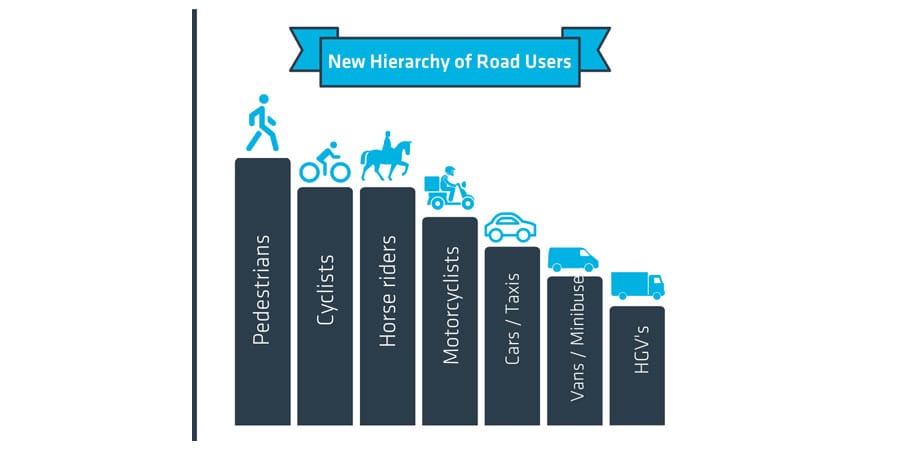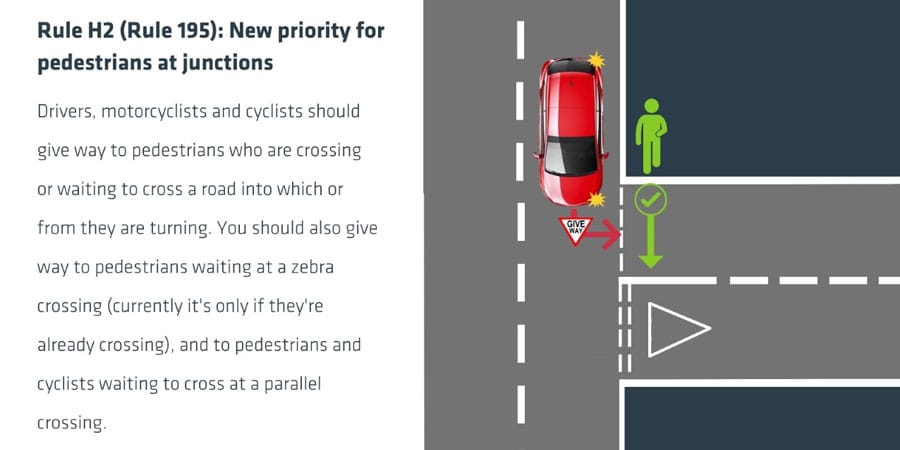14% of people have no idea the Highway Code has changed

We did mention this before it all came into effect, but it seems a significant chunk of people still have no idea The Highway Code underwent a series of changes which came into force on Saturday 29 January.
The
Highway Code
applies to pedestrians, cyclists, motorcyclists, and horse riders as well as drivers. Many of the rules of the Code are legal requirements and you could be fined, given points on your licence, or disqualified if you don't obey them. In serious cases you could also be sent to prison.
As the old saying rightly states, ignorance is not a defence from the law. According to
a recent YouGov survey 14% have no idea the rules have changed
, while almost half have heard the news but aren't entirely sure what the new rules are.
The changes are broadly geared towards making the road safer for cyclists and other non-vehicle users.
There is a new hierarchy of road users
This essentially states the more potential harm you can cause, the more responsibility you carry. Under redefined rules, the more vulnerable road user automatically gets the right of way.
The most well-publicised new rule – giving pedestrians waiting to cross a road right of way – is correctly identified by 75% of drivers. Similarly, if a driver is turning into a junction and a cyclist, horse rider or horse-drawn vehicle is going straight ahead, 65% of drivers are aware that the other road user now has priority. However, these are the only two rules which the majority of the British public are able to identify correctly.
So, at the risk of sounding a bit boring, and apologies to those of you who are already fully aware, the changes you need to be aware of as a responsible road user are…

Hierarchy of Road Users
Rule H1
It is important that ALL road users are aware of The Highway Code, are considerate to other road users and understand their responsibility for the safety of others.
Everyone suffers when road collisions occur, whether they are physically injured or not. But those in charge of vehicles that can cause the greatest harm in the event of a collision bear the greatest responsibility to take care and reduce the danger they pose to others. This principle applies most strongly to drivers of large goods and passenger vehicles, vans/minibuses, cars/taxis, and motorcycles.
Cyclists, horse riders and drivers of horse drawn vehicles likewise have a responsibility to reduce danger to pedestrians.
None of this detracts from the responsibility of ALL road users, including pedestrians, cyclists, and horse riders, to have regard for their own and other road users' safety.
Always remember that the people you encounter may have impaired sight, hearing or mobility and that this may not be obvious.

Rule H2 - Rule for drivers, motorcyclists, horse drawn vehicles, horse riders and cyclists
At a junction you should give way to pedestrians crossing or waiting to cross a road into which or from which you are turning.
You MUST give way to pedestrians on a zebra crossing, and to pedestrians and cyclists on a parallel crossing (see Rule 195).
Pedestrians have priority when on a zebra crossing, on a parallel crossing or at light-controlled crossings when they have a green signal.
You should give way to pedestrians waiting to cross a zebra crossing, and to pedestrians and cyclists waiting to cross a parallel crossing.
Horse riders should also give way to pedestrians on a zebra crossing, and to pedestrians and cyclists on a parallel crossing.
Cyclists should give way to pedestrians on shared use cycle tracks and to horse riders on bridleways.
Only pedestrians may use the pavement. Pedestrians include wheelchair and mobility scooter users.
Pedestrians may use any part of the road and use cycle tracks as well as the pavement, unless there are signs prohibiting pedestrians.
Rule H3 - Rule for drivers and motorcyclists
You should not cut across cyclists, horse riders or horse drawn vehicles going ahead when you are turning into or out of a junction or changing direction or lane, just as you would not turn across the path of another motor vehicle. This applies whether they are using a cycle lane, a cycle track, or riding ahead on the road and you should give way to them.
Do not turn at a junction if to do so would cause the cyclist, horse rider or horse drawn vehicle going straight ahead to stop or swerve.
You should stop and wait for a safe gap in the flow of cyclists if necessary. This includes when cyclists are:
- approaching, passing, or moving off from a junction
- moving past or waiting alongside stationary or slow-moving traffic
- travelling around a roundabout
View our latest blog posts

Categories
Pages
We are a family run business based in rural Worcestershire. Our team of 38 staff are on hand to provide an exceptional service to personal and business customers.
Read More
